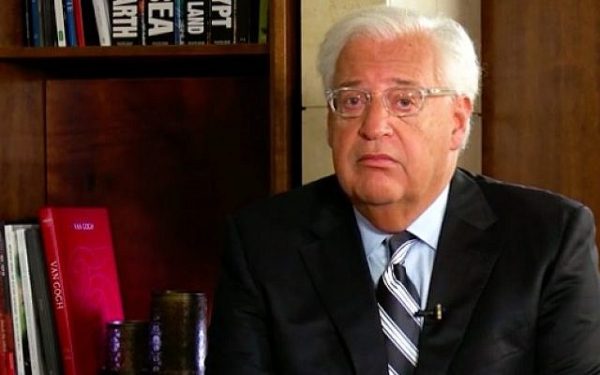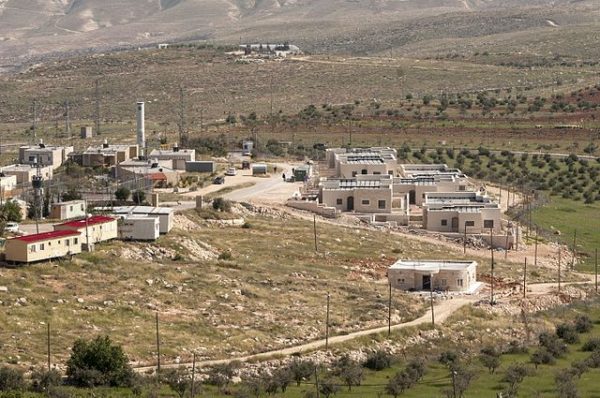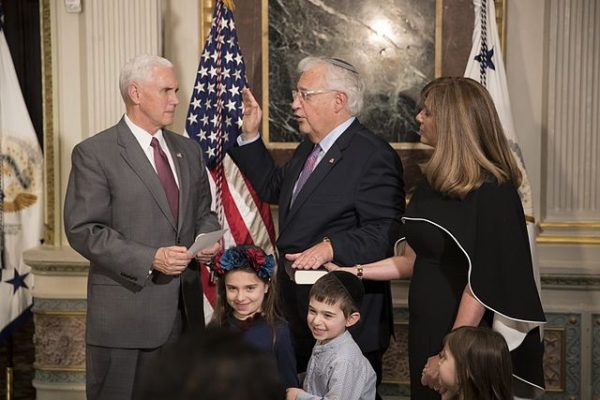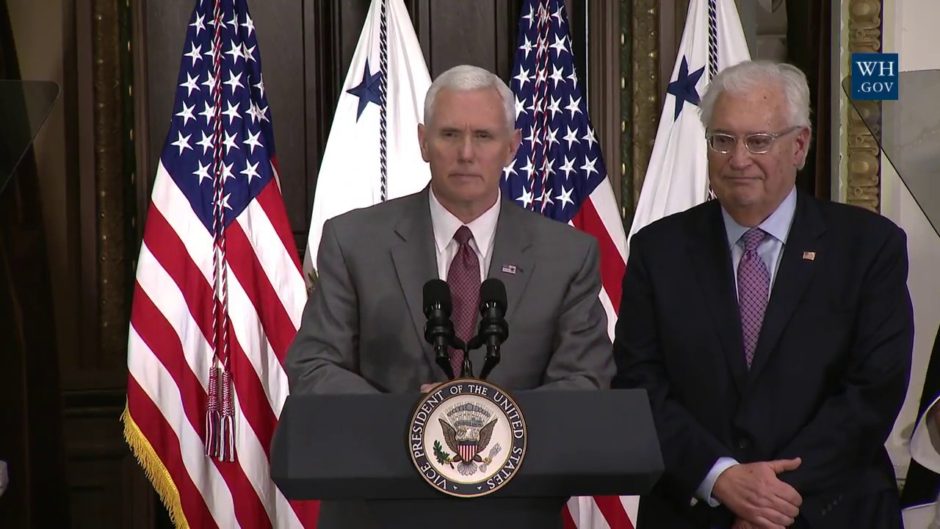David Friedman, the new U.S. ambassador to Israel, has been shooting off his mouth again, issuing statements at odds with American policy.
An outspoken supporter of Israeli settlements in the West Bank, he recently claimed that “settlements are a part of Israel,” a loaded comment that surely embarrasses the United States.

“I think that was always the expectation,” he said in a reference to United Nations Security Council Resolution 242, which was passed in 1967, shortly after the Six Day War.
The resolution, he said, implied that Israel was entitled to secure borders.
“So Israel would retain a meaningful portion of the West Bank, and (Israel) would return that which it didn’t need for peace and security,” he noted. “There was always supposed to be some notion of expansion into the West Bank, but not necessarily expansion into the entire West Bank, and I think that’s exactly what Israel has done. I mean, they’re only occupying two percent of the West Bank.”
Friedman added that the two-state solution, the only diplomatic game in town, has “largely lost its meaning …”
Friedman’s skewed interpretation of Resolution 242 is self-serving and out of sync with the contours of American policy.
Resolution 242, approved unanimously by the UN Security Council and the fount of peacemaking efforts since the Six Day War, cites the “inadmissibility of the acquisition of territory by war.” It does not, as Friedman suggests, sanction Israel’s conquest and continuing control of the West Bank — which is mainly inhabited by Palestinians and widely seen by the international community as an integral component of a future Palestinian state.

Since the Six Day War, when Israel captured the West Bank, the United States has consistently opposed the construction of settlements beyond the old Green Line. To be sure, Washington has never regarded these outposts, populated today by about 400,000 Jews, to be inside Israeli territory. Indeed, Israel has refrained so far from annexing the West Bank.
Friedman was way off the mark by categorizing the settlements as part of sovereign Israel. True, the current U.S. president, Donald Trump, has adopted a more conciliatory approach to the settlements, but even he has asked Israel to act with caution and restraint.
Certainly, U.S. State Department spokeswoman Heather Nauert rejected Friedman’s impolitic remarks, saying they do not “indicate a shift in U.S. policy.”
Nor could she confirm Friedman’s claim that settlements occupy only two percent of the West Bank’s land mass. As she put it, “I don’t know where that (figure) came from,” she said. “I want to be crystal clear that it should not be read as a way to prejudge any negotiations that the United States may hold with Israeli and Palestinians.”
Friedman’s claim that settlements occupy two percent of the land in the West Bank is very misleading because Israel maintains full military and civilian control of Area C, which comprises about 60 percent of the West Bank and where the settlements are located, and partial control of Area B, which makes up about 22 percent of the West Bank.
Friedman’s insinuation that the two-state solution is irrelevant is specious. Despite Trump’s confusing endorsement last winter of either a one-state or a two-state solution, U.S. policy rests on a foundation of a two-state solution — the only realistic and practical method of satisfying Palestinian national aspirations and defusing Israel’s protracted dispute with the Palestinians.
It’s less than surprising that Friedman, an Orthodox Jew, is using his position inappropriately to advocate on behalf of the Israeli settlement project in the West Bank. Before his appointment as ambassador, he headed an organization that raised funds for Beit El, a settlement in the West Bank, and spoke of Israel’s “alleged occupation” of the West Bank.

Given his partisan views, Trump should not have offered Friedman, his bankruptcy lawyer, this sensitive job. Friedman, from the start, was an unsuitable candidate.
Friedman’s opinion of the settlements is clearly in accord with the Jewish settlers of the West Bank and with Israeli Prime Minister Benjamin Netanyahu, who last month said, “There will be no more uprooting of communities (settlements) in the Land of Israel” (the West Bank).
Netanyahu issued this statement at a ceremony marking the 50th anniversary of the construction of the first Jewish settlement in the West Bank. The ceremony was generally boycotted by foreign diplomats stationed in Israel.
Tellingly enough, Friedman did not attend, presumably having been ordered by his superiors in the State Department to stay away.
